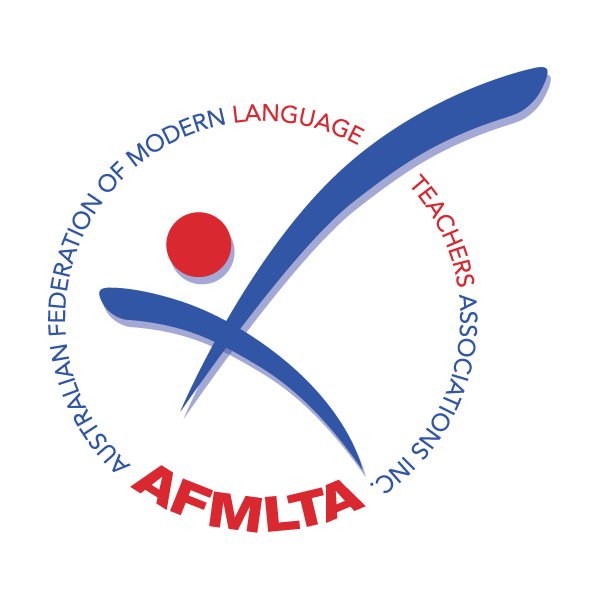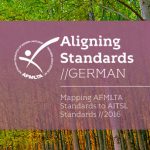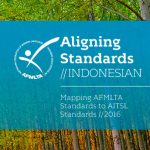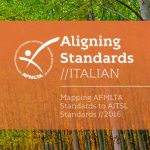AFMLTA has developed a suite of Professional Standards resources to support Languages teachers in reflection on practice and planning for future growth. Click images below to access the interactive versions of the Professional Standards.

Professional Standards for Accomplished Teaching of Languages and Cultures were developed by the Australian Federation of Modern Language Teachers Associations (AFMLTA) and published in 2005.
Language specific annotations in 7 languages were added to the AFMLTA Professional Standards suite of materials in 2008 and Professional Standards for Lead Teachers of Languages and Cultures were added in 2012.
The AFMLTA standards are aspirational. They provide examples of characteristics that language teachers should aim for during their careers. They are intended as a framework for thinking through current professional work and identifying needs for future development. They have been developed by language teachers for language teachers, and are specific to language teaching, rather than teaching in general.
It is important to distinguish the AFMLTA standards from the Australian Professional Standards for Teachers (AITSL standards).
The AITSL standards are career-guiding, reporting and accountability standards that apply to all teachers. All teachers are required to meet the levelled standards at various career stages for registration purposes (graduate level), recognition of proficiency after a few years of teaching (proficient level), and for promotional purposes (highly accomplished and lead levels).
Teachers at the different stages of their careers need to be able to demonstrate the full set of AITSL professional requirements for each of these stages, and to be able to use the standards to determine, on their own and in consultation with their colleagues and managers, areas for their own professional development.
It is important that languages teachers are familiar with, and are able to use and respond to, both sets of standards in their professional practice. To assist language teachers to align these two sets of standards, the AFMLTA has developed Aligning Standards (AFMLTA 2016) in 7 languages. These map the AFMLTA standards to the AITSL standards. Language teachers can use this mapping to work both ways in considering their professional practice. That is, they can begin with the AITSL standards, and look across to the AFMLTA standards to determine how they are meeting the AITSL requirements, through recognition of their work in languages teaching; or they can begin with the AFMLTA standards, and recognise alignment with the AITSL standards, for purposes of professional career mapping, performance appraisal, promotion, registration and re-registration, and in planning their (and their colleagues’, if they are in leadership positions) professional learning needs.
Information relating to the 2008-2009 Professional Standards Project: Languages is available here.











